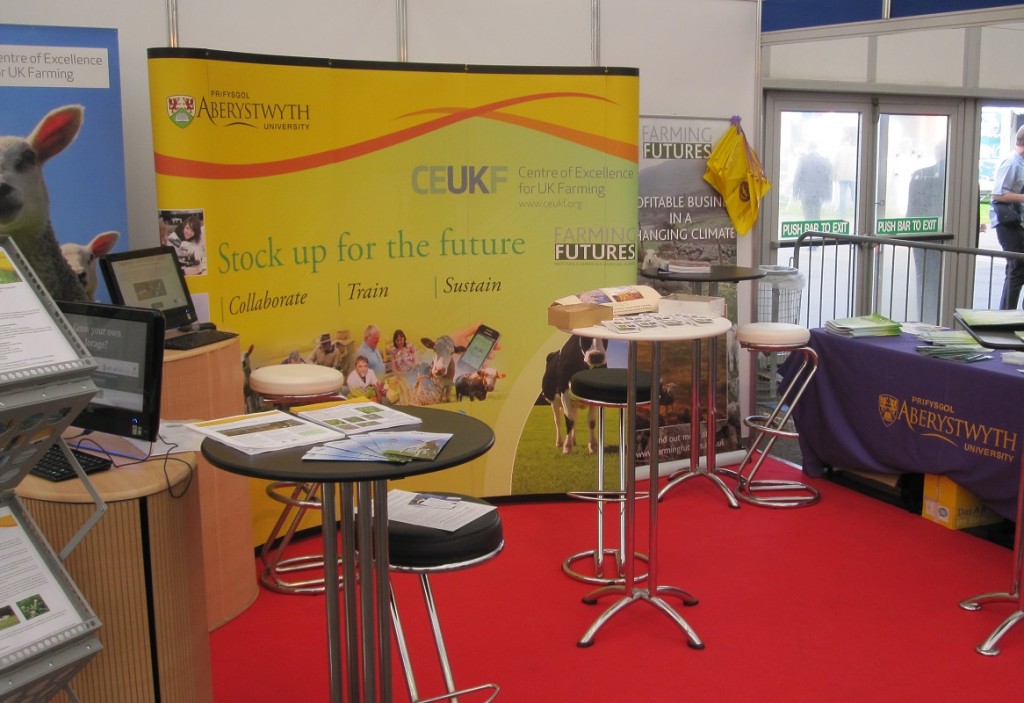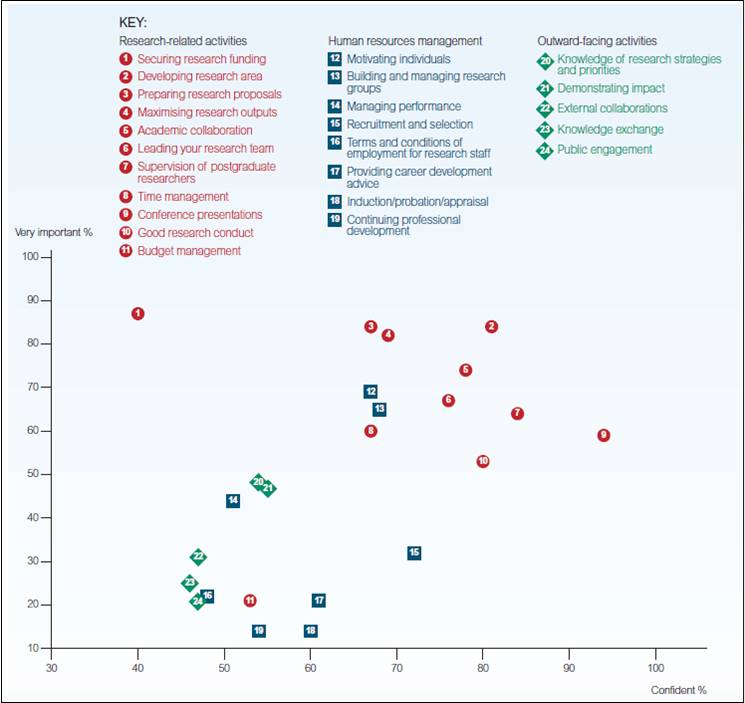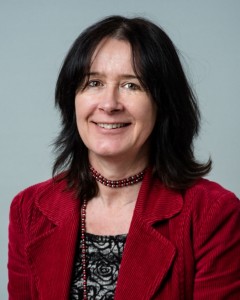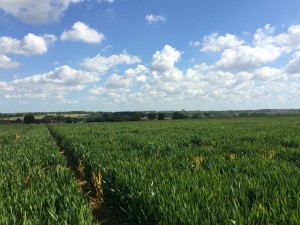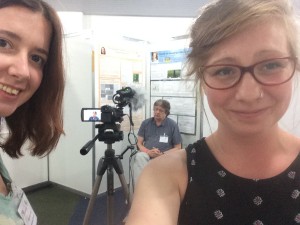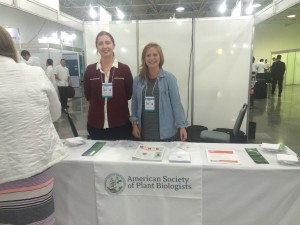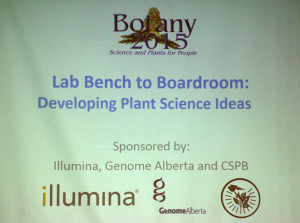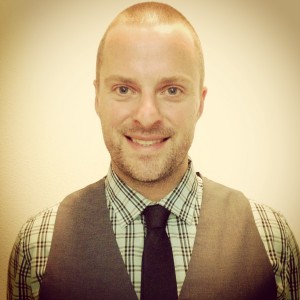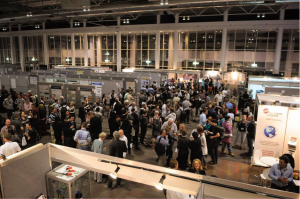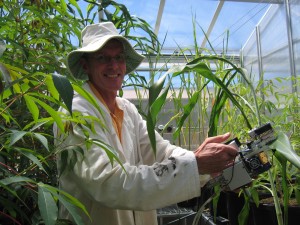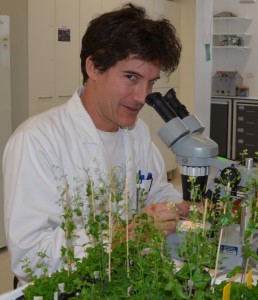This week we speak to Tim Williams, the Business Manager of Farming Futures and Research Fund Development Manager at Aberystwyth University, UK.
Could you give a brief introduction to Farming Futures and its mission?
Farming Futures is an independent, UK-based, inclusive agri-food supply chains alliance. Our mission is to work with researchers and industry to share knowledge, with the aim of improving the sustainability and productive efficiency of agriculture, all within the context of healthy, high-quality food.
What is the history of the organization?
Farming Futures started with an idea by Professor Wayne Powell in 2009 (then the director of the Institute of Biological, Environmental and Rural Sciences (IBERS) at Aberystwyth) in discussion with Mark Price, who was the Managing Director of British supermarket chain Waitrose. It was launched in 2010, starting out as the Centre of Excellence for UK Farming (CEUKF). Waitrose seed-funded Farming Futures, and since then we have received support from the Agriculture and Horticulture Development Board (AHDB) and Innovate UK.
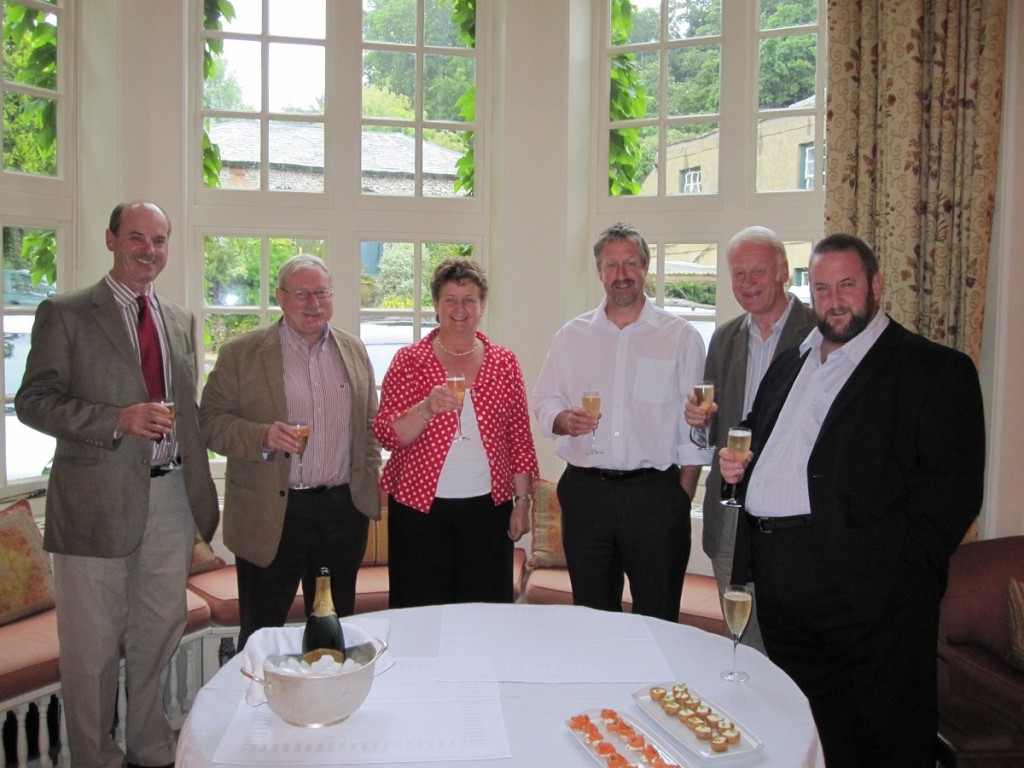
The inauguration meeting of Farming Futures in 2009, then known as the Centre of Excellence for UK Farming. Left-Right: Tim Williams, Wayne Powell, Heather Jenkins, David Davies, Philip Morgan, Jamie Newbold.
How has plant and crop research been integrated into the recommendations presented by Farming Futures?
Plant science is the fundamental driver for agri-food development. We work closely with industry, as well as the AHDB and other farm advisory bodies across the UK to inform them about new developments. Accelerated, directed breeding programs using genomic and phenomic technologies are helping us to develop new varieties that offer more productive, more resilient, environmentally friendly plants – not just as food crops, but also for soil quality, nutrient retention, flood reduction, energy biomass, renewable chemistry, and a host of other desirable characteristics.
Historically, to paraphrase a fellow botanist, we have bred ‘needy, greedy plants’ that deplete resources and need lots of nasty chemicals to keep them growing. Now scientists are mining the genomes of crop ancestors to rediscover the genetic traits we unwittingly threw away on the route to increased yield.
What roles do research partners such as universities play?
We work together in a pre-competitive way to enable research, and to represent farming within agri-food policy – researchers from different organizations can collaborate thanks to our partners’ trusting relationships with each other. Collaborations in science are vital because the problems our global society faces are multi-factorial, non-linear and multi-disciplinary. They are far too complex for the typical university research team, working alone, to address efficiently. We need the equivalent of the CERN Large Hadron Collider project for agri-food.
In addition to helping researchers to bring in millions of pounds worth of applied research projects (at least £12 million, but it is notoriously difficult to find out what industry is funding), Farming Futures helped to establish the government-funded Agri-Food Tech Centres of Innovation for a total of around £90 million, bringing in industry to co-fund and support three of the four: the Agrimetrics Centre, Agri-Epi-Centre and Centre of Innovation Excellence in Livestock. In time, these Centres will catalyze a lot of collaborative research and will help stimulate innovation and technology uptake by industry.
…Economic returns on R&D are about 27 X investment but takes an average of 23 yrs for R&D innovation to be taken up by agriculture. 2/2
— DefraChiefScientist (@DefraChiefScien) January 27, 2016
What climate change challenges will farmers face? Are there any specific challenges that Farming Futures can address?
Farming Futures and its network brings together scientists from different disciplines to discuss these problems and potential solutions. For instance, people from the UK’s national weather service (the Met Office) and some of the biggest food retailers and processors in the world come together at our conferences and workshops to think through scenarios and solutions. These solutions include breeding crops for increased resilience, not just peak yield. We are running out of fungicides that work efficiently, in the same way that we are running out of antibiotics; however, some very clever scientists have worked out some potential solutions that are more environmentally sound, so I am an optimist.
This problem solving is best done at the supply-chain level as it brings in a wider expertise. As I repeat often, a colleague once said to the board of one of the world’s biggest brewers, “No barley = no beer = no business”, inferring the question, “What are you doing to ensure that barley growers are going to be able to supply you in the future?”
Your website has an interesting study from 2011 highlighting six potential jobs of the future, including geoengineer, energy farming, web 3.0 farm host, pharmer, etc. How can students direct their skill development to meet the needs of the future?
There are many emerging jobs and skills, but each of these named jobs from 2011 are actually in practice now. The web 3.0 has now become web 4.0, which is the “internet of things”, with data collection from lots of devices including drones for precision agriculture and robots for weeding and picking crops.
The future of agri-food is in big data, including consumer behavior, weather forecasting, genomics, phenomics, and real-time analysis of the growth progress of plants and animals on-farm. We need more electronic and mechanical engineers with an understanding of biology, as well as more biologists who work within the agri-food industries and in government policy development.
What are you currently working on?
We are currently working with partners on a number of projects across the Agri-Food Tech Centres and trying to form more research collaborations. One of our big projects is The National Library for Agri-Food. I am currently working with web developers and experts from Jisc and the British Library to scope the requirements and to build a demonstration web site.
Finally, I would just like to add that we are open to collaborations across agri-food supply chains and will work to foster them, either openly or privately as appropriate.
In addition to IBERS, Farming Futures has four founding members (Northern Ireland’s Agri-Food and Biosciences Institute (AFBI), Harper Adams University (HAU), NIAB with East Malling Research (NIAB-EMR), and Scotland’s Rural College (SRUC)) and an influential Steering Board, chaired by Lord Curry of Kirkharle, who is very well known and respected in UK government and farming.


